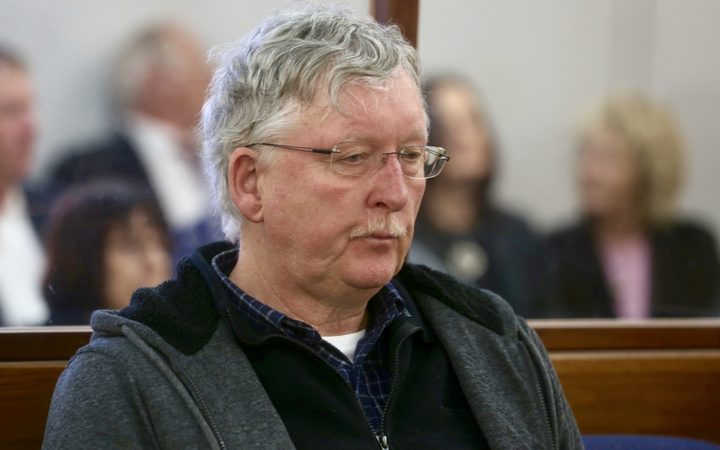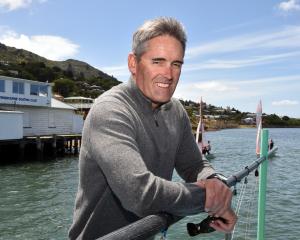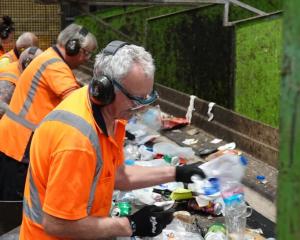
It has also emerged that while the Minister of Local Government Nanaia Mahuta and officials are aware of problems between elected representatives and council staff, the government said it's too busy to change the law and the issues are complex.
In June 2018, Scott was convicted of indecent assault, fined $1500 and issued a first warning under the three strikes law. A year later he lost his appeal against his conviction and sentence for the assault in April 2017.
Scott is standing for a seat on the Kāpiti Coast council in October's local body elections.
The woman said, at present, councillors aren't held to the same standards as council employees and as a result some council staff experience inappropriate behaviour, harassment and in extreme cases, sexual assault at the hands of elected members.
Next month the complainant in the case, whose name is permanently suppressed, is going back to court for a restraining order against Scott, following "recent unacceptable behaviour".
"He hasn't contacted my family, but he has been emailing all sorts of people about me," she said.
The woman said the harassment and ongoing intimidation following the incident, compounded by the court proceedings, the media attention and the harassment of family members, meant the stress was "just awful".
"The mannequins that were put up outside the council, the glaring from his supporters at council meetings, the mob-like attendance at court fixtures, the posts on Waikanae Watch, and the unsolicited contact of my family members. In that regard I'm still having to go through restraining order proceedings to try and prevent David Scott from contacting members of my family."
Scott said he wasn't clear why she was going to court.
"I'm not clear what her grudge is or why she is still thinking about me," he said.
She said the whole experience was "appalling".
"It could have been prevented right back in 2015 before I even started working at council, had the chief executive been given the tools through the legislation to deal with elected member behaviour," she said.
"Had the chief executive been able to give effect to his obligations under the Health and Safety and Employment legislation. That wasn't the case and no progress has been made since."
Currently, the only way councils can sanction an elected member is by filing a Code of Conduct complaint. The Kāpiti Coast District Council initiated the complaint, but dropped it when Scott was removed from office after his appeal failed.
In a statement, the council said the next step would have been to present a paper to Council, seeking agreement to proceed with the complaint. If granted, an independent person (typically a lawyer) would be appointed to investigate. After interviewing the parties involved, they would prepare a report and present it to council.
But there were limited sanctions that could be applied through the Code - including censure and a request for an apology. "There is no ability for a councillor to be removed from office," it said.
In June last year, the woman said she met with Department of Internal Affairs officials to discuss problems with the current system, which means elected officials aren't held to the same standards as council employees.
She presented a summary, outlining the current problems and suggesting possible solutions, including making a Council's Code of Conduct binding, referring complaints to an independent body, or preventing anyone convicted of a crime punishable by more than two years imprisonment from standing in local body elections.
At the meeting she said she was told there were some options for omnibus bills or other work programmes that might be a suitable way of looking into, and possibly resolving the problem.
In December, she emailed again and received a reply telling her officials were working on it and would keep her updated. Since then, she has heard nothing.
At around the same time, she emailed the Ms Mahuta, again outlining the problems with the current system and suggesting possible solutions.
In February, she received a signed response from Ms Mahuta saying she was assessing local government sector functions and the performance of individual councils.
"I have been made aware of a number of instances of difficult working relationships between elected local government representatives and council staff during that time. It has been made clear to me that current local government legislation requires improvement," the letter says.
"I have asked officials from the Department of Internal Affairs (the Department) to develop advice, including consideration of the issues you have identified. I have also asked Department officials to maintain contact with you as this work develops."
Ms Mahuta declined to meet the woman saying she was too busy.
When asked about the lack of action and the lack of contact with the complainant, Ms Mahuta's office said officials were mindful of the issues that had been raised and were looking at opportunities to improve the law.
"There are limited opportunities to progress potential law changes within the current legislative programme, if changes were considered appropriate," her office said.
"These changes are complex and require careful consideration as to the impact on candidacy, democratic rights and providing effective tools to deal with and prevent this inappropriate behaviour."
The woman said the minister's response and officials lack of action was disappointing.
She said she wasn't an expert in this area and wasn't wedded to an outcome, but all she wanted was an open, well-informed conversation, that addressed the issues, rather than ignoring them.
"What I have suggested was intended to start a conversation to trigger an analytical process and to get experts to look into these issues. I'm not standing here saying 'this is how it should be' I'm just pointing out some issues and trying to start a process to have these conversations," she said.












